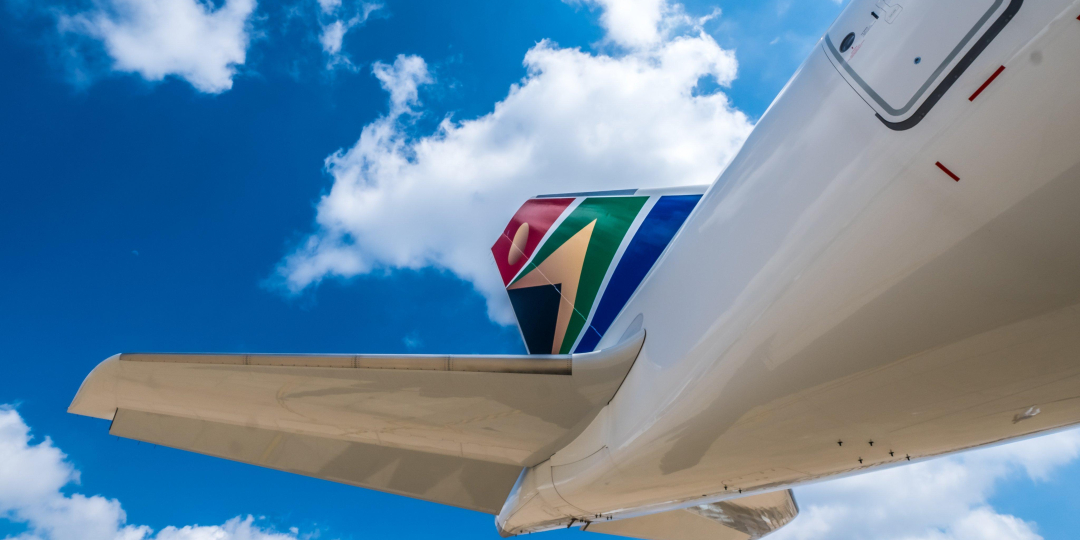Holders of SAA tickets or vouchers will be refunded in full to the tune of about R3bn if the proposed business rescue plan (BRP) is implemented and government provides the requisite funding. Consequently, ticket/voucher holders are not deemed to be concurrent creditors and will not be allowed to vote at Thursday’s (June 25) meeting of creditors. This has been confirmed to Travel News by SAA’s business rescue practitioners, Les Matuson and Siviwe Dongwana.
The BRP proposes that government raise funding for “the continuation of the business as a going concern, which would include the honouring of tickets bought by customers or any subsequent vouchers that they may receive in accordance with SAA’s policy”. The value of this unflown ticket liability is stated to be about R3bn. “Considering that the intention is to honour all the flights and the refunds, where necessary, ticket holders are not part of the concurrent creditors, because they will not be compromised on their claims, pre- and post-rescue,” the rescue practitioners told Travel News.
Are ticket holders creditors or not?
This is being disputed by independent business rescue practitioner and aviation economist, Joachim Vermooten, who says ticket holders are ordinary creditors, who should be treated like all other creditors. In his view, the BRP is incorrect to envisage a full repayment of unflown tickets, because repaying ticket holders 100% of their claims prejudices other creditors. This is not reflected in the plan,” he says. Under the terms proposed by the BRP, concurrent creditors will already only receive 7,5 cents in the rand totalling R600m. “All creditors are supposed to be treated in the same way,” says Joachim. “There is no legal basis for some creditors to receive more than others, unless they are secured by some contractual right against SAA, like an asset that is encumbered.”
Airlink ceo and md, Rodger Foster, agrees, saying the proposed SAA BRP prejudices concurrent creditors, including Airlink, to the benefit of Government (SAA’s shareholder), “which will then own an unencumbered business funded by concurrent creditors, but which will still be commercially insolvent”. Airlink is appealing a South Gauteng High Court judgment in an effort to retrieve more than R700m from SAA for tickets issued on flights flown by Airlink in November and up until December 5, when SAA went into business rescue. Airlink has also launched an urgent interdict to prevent the June 25 creditors’ meeting from going ahead, and to have SAA provisionally liquidated and the BRPs sacked. Rodger says “all creditors, including Airlink, deserve a fair deal based on a reasonable settlement”.
Joachim says full refund for advance bookings should be recognised as a cost of start-up operations, which represents cost and losses to SAA, which has not been done in the BRP. “If the Government wants to honour the amounts paid in advance (for tickets), it should provide such funds, less what the creditors would get through the percentage dividend to ordinary creditors. For new bookings after the business rescue process, similar creditors would develop and new government guarantees (or deposits to cover bank guarantees) would be required by the licensing authorities,” he says.
Did SAA act illegally?
The business rescue practitioners have confirmed that “all the post-commencement unflown ticket liability has been ring-fenced by the BRPs, so there are funds available to honour that”. “However, the unflown ticket liability before rescue was not ring-fenced as the BRPs inherited the company with only R118m in the bank.”
The BRPs declined to comment on the assertion that SAA may have acted illegally when it used unflown revenue for operational purposes before it went into business rescue, which would have constituted the bulk of the R3bn unflown ticket liability.
In terms of Section 65 of the Consumer Protection Act (CPA), any unflown revenue remains the property of the consumer. Industry lawyer, Advocate Louis Nel confirms that the CPA states that “a supplier holding any prepayment, deposit or other money of the consumer may not treat that property as being the property of the supplier and is liable to the consumer for any loss from failure to comply”. SAA previously issued an advisory that no refunds would be paid out and instead customers would be given vouchers redeemable for future flights, with no security given that those flights would happen. However, the BRPs say SAA ticket holders have been offered the option of vouchers and some refunds have been made.
Asata’s main concern is that SAA honours its obligation towards travellers in terms of the CPA, says ceo, Otto de Vries. “Regardless of when the booking was made, travellers are entitled to either receive the services at the agreed time, at a later date, or to get a refund. At the moment, travel agents are not allowed to apply for a refund on behalf of passengers whose flights have been cancelled due to COVID-19. We welcome the news that at least the funds received after commencement of the business rescue have not been used. Section 65 of the CPA was designed exactly to protect consumer funds held by companies for services, which will only be rendered in the future – those funds belong to the consumer. We trust that SAA will honour its obligations to consumers, regardless of the outcome of the business rescue process.”














